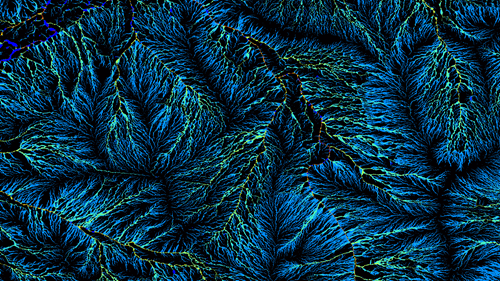This follows the SKA Organisation (SKAO) announcement that it has allocated R&D ‘work packages’ to consortia from around the world. The consortia, involving science institutes and industry, will progress the design and validation processes of the SKA to a stage that will enable tendering and build of the telescope from 2017.
CSIRO will head up the largest of these consortia, the SKA Dish Array Consortium, and will be responsible for the design work relating to the SKA’s 2500 antenna dishes and receivers, and the development of innovative receivers known as phased array feeds (or PAFs).
In addition, CSIRO will lead the Infrastructure Australia Consortium in charge of designing and costing critical SKA infrastructure at the Australian SKA site (the Murchison Radio-astronomy Observatory in Western Australia). This would include the provision of power, communications, buildings, water and access to the site.
“The SKA is an international project, with global scale and huge scientific ambition,” Chief of CSIRO Astronomy and Space Science Dr Lewis Ball said.
“CSIRO’s considerable expertise in the field of radio astronomy means we can make a real contribution to one of this century’s most exciting scientific projects.”
Dr Ball also highlighted the benefits of CSIRO’s innovative PAF technology which is currently being developed for use with its Australian SKA Pathfinder (ASKAP) telescope, as well as for use with the future SKA.
“PAFs give astronomers the opportunity to view a large part of the sky all at once and can transform sky survey speeds by more than a factor of twenty when compared to traditional receiver technologies,” he said.
“This ground-breaking technology will truly revolutionize the field of radio astronomy.”
CSIRO will also be a key partner in the Assembly Integration and Verification Consortium, which includes the integration of CSIRO’s ASKAP and the South African MeerKAT precursor telescopes, into Phase 1 of the SKA telescope rollout.
As well, the organisation will be involved in several other SKA consortia including those designing the telescope control system and the telescope’s signal processing and data transport functions. It will receive $9m in funding from the Australian Federal Government in support of its SKA R&D activity.
When complete, it is expected that the SKA telescope will be able to operate thousands of times faster than the best present day instruments. It will allow research into giant gas clouds, black holes, magnetic fields, as well as distant galaxies, and will address a wide range of fundamental questions in physics, astrophysics, cosmology and astrobiology.
Images
B-roll video
Background information
Extra information about the SKA
The SKA will be a revolutionary radio telescope made of thousands of dishes and literally millions of radio wave receptors, or antennas, linked together by high bandwidth optical fibre. The telescope will be co-located in Australia and in Africa.
The SKA is so named as it will consist of antennas that will have a collecting area of approximately one square kilometre.
The SKA is a global project, involving eleven countries from five continents, and is led by the international SKA Organisation based at Jodrell Bank Observatory near Manchester, UK.
Construction of the first phase of the SKA will begin in 2018, with work on a second phase planned to begin in the early 2020s.
The SKA Organisation’s announcement with associated quotes can be found at its website: The Square Kilometre Array

